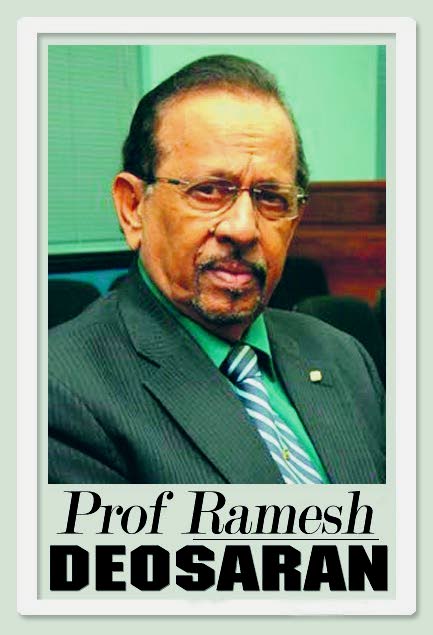Lawlessness, 1977 to now

Last week, as part of well-distanced discussion, a former politician, now businessman, asked a politically-charged question: “How come governments change but with little or no improvements in service or facilities to citizens? How and why does this happen?”
An answer from the far corner came: “Because once elected, they can’t be touched.”
He added: “It’s not only government and public service, it is sometimes worse with service by private business.”
In my September 27 column,“Service, service, please,” I noted Darren Kedar’s letter to the editor stating you get bad service because they feel “they can get away with it.” It’s puzzling when I recall how so many of today’s socio-economic problems, many years old, still remain unresolved. Let’s see.
I began this Newsday column on July 27, 2010, just over ten years ago, on the kind invitation of then editor-in-chief, the indomitable Therese Mills, earnestly hoping for betterment in our socio-economic and political conditions. That was 2010, when then PM Patrick Manning, holding 26 of the 41 seats, called an election two years before its due date.
With charges and counter-charges of crime and political mismanagement, that 2010 election saw PNM seats reduced to 12 and the People’s Partnership up from 15 to 29. This 2010-15 majority gave the PP an exceptional opportunity to undertake the required number of constitutional and institutional repairs.
However, the PNM recovered in 2015 with 23 seats and the UNC 18. The state of disrepair remains.
There's further distress when I recall my Sunday Express 1977 column on crime and public safety stated: “Since July 21, 1977 when my call for a multi-sectoral National Crime Commission was first made, bank robberies and other crimes became more notorious not so much for their frequency but also for their pattern, boldness and viciousness.”
It continued: “A state of emergency here, an extra home for ‘insane’ murderers there and shouts for more jails would just be ‘knee-jerk’ social planning. This is a critical moment for the Cabinet. A National Crime Commission could take us behind the scenes and possibly behind the minds that ferment crime and violence. The time has come for the public interest to be heard.”
I say all this to raise the fundamental question raised earlier: why governments change with little or no meaningful improvements to citizens’ lives. What are the barriers? Today there are oil prices and covid19, but these questions go back before that, raising a related question: Do voices of the people, including media opinion, really count?
My very first Newsday column, on July 27, 2010, was headlined “Land grabbing, lawlessness and politics.” There was lot of public anger and frustration. An edited version follows:
“Lawlessness is a scourge, a blight, a cancer upon a society because it brings severe distress upon the lawful. It is a blight because of its ugly nature and disorderly features. It is like a cancer because it spreads quickly.
“Take the ‘land-grabbing’ at Cashew Gardens in eastern Chaguanas. This dirty practice of land-grabbing, has put ‘normal squatting’ in the shade, even pushing law enforcement on the defensive. Former Minister Emily Gaynor Dick-Ford viewed the Cashew Gardens ‘land-grabbing’ as the çhickens çoming home to roost.’ One People’s Partnership minister after another, promising to stop it, offered ‘counselling.’ When will an enforceable squatting policy be made within or outside the State Land (Regularisation of Tenants) Act No 25 of 1998?
“From radio talk shows, letters to editors, notices to regional corporations, Town and Country Planning, public health inspectors to street protests, law-abiding citizens have been lodging complaints about the squatting epidemic, about derelict vehicles illegally parked on roads, about littering. But all such complaints apparently ended up in political dustbins. This scourge of lawlessness has been spreading and aided by political passivity, even complicity.
“Does such lawlessness really help the poor? Look, helping the poor, providing for the destitute, these are noble deeds. But that is not what we are talking about. We have to resurrect the notion that self-help within an appropriate lawful infrastructure is still the best way to go. If you look around the country you will see ‘little people’ all over busy selling this, that and the other. Micro-entrepreneurship and self-help enterprise are bubbling all around us. The authorities should facilitate this rather than unbridled lawlessness.”

Comments
"Lawlessness, 1977 to now"